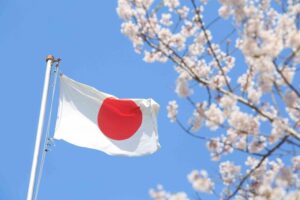
According to a survey conducted by Active Group in collaboration with Experts Club in August 2025, Ukraine has one of the most positive attitudes toward Japan among countries worldwide.
According to the study, 68.7% of Ukrainians have a positive opinion of Japan (33.0% — mostly positive, 35.7% — completely positive). Only 2.7% have a negative opinion, while 26.7% of respondents are neutral. Another 2.0% admitted that they know little about the country.
“Japan occupies a special place in the perception of Ukrainians. It is seen as an example of a country that has achieved great results through innovation, technological development, and the preservation of traditions. This level of trust can become the basis for further expansion of cooperation between our countries,” emphasized Active Group CEO Oleksandr Pozniy.
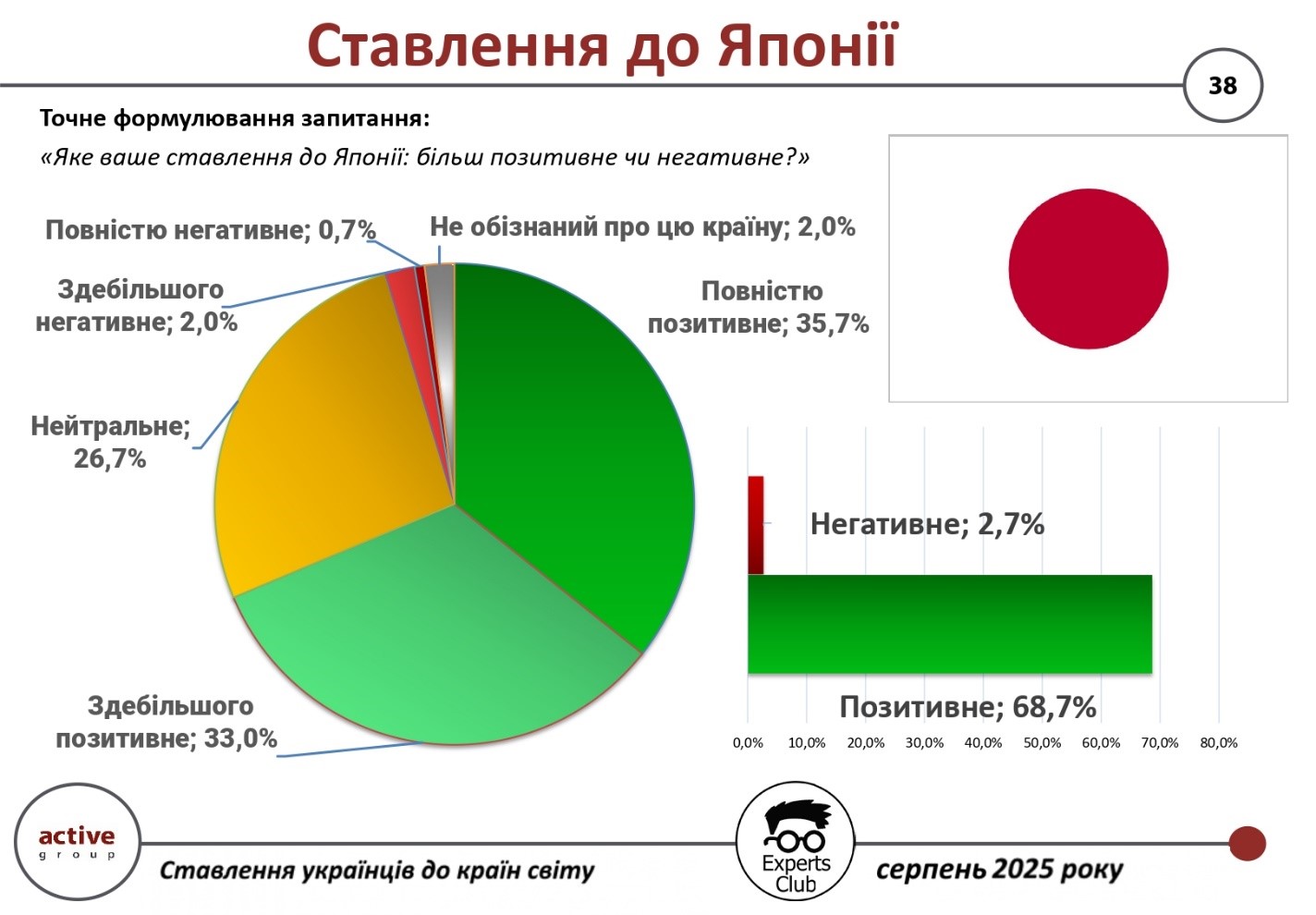
In turn, Maksim Urakin, co-founder of Experts Club, emphasized the economic dimension:
“In 2025, the total trade volume between Ukraine and Japan exceeded $521 million. At the same time, Ukrainian exports to Japan amounted to only $18 million, while imports exceeded $502 million.
This resulted in a significant negative balance of $484 million. Such an imbalance is a signal to look for new opportunities for Ukrainian goods to enter the Japanese market,” he stressed.
The study was part of regular monthly monitoring of Ukrainians’ attitudes toward key international partners.
The full video can be viewed at: https://www.youtube.com/watch?v=YgC9TPnMoMI&t
You can subscribe to the Experts Club YouTube channel here: https://www.youtube.com/@ExpertsClub
ACTIVE GROUP, EXPERTS CLUB, JAPAN, Pozniy, RELATIONS, SOCIOLOGY, TRADE, UKRAINE, URAKIN

Ukrainians’ attitude towards Belgium is mostly positive, although a significant portion of respondents take a neutral position. This is evidenced by the results of a nationwide sociological survey conducted by Active Group in collaboration with Experts Club in August 2025.
According to the results, 54.7% of Ukrainians have a positive attitude towards Belgium (35.3% — mostly positive, 19.3% — completely positive). Only 2.7% of citizens expressed a negative attitude (0.3% — mostly negative, 0.3% — completely negative). At the same time, 43.0% of respondents remain neutral, and 2.3% said they do not have enough information about the country.
“Belgium is perceived by Ukrainians as an important member of the European Union and NATO, a country that consistently supports Ukraine on the international stage. At the same time, its relative remoteness and lack of deep historical ties account for the high proportion of neutral assessments,” explained Active Group founder Oleksandr Pozniy.
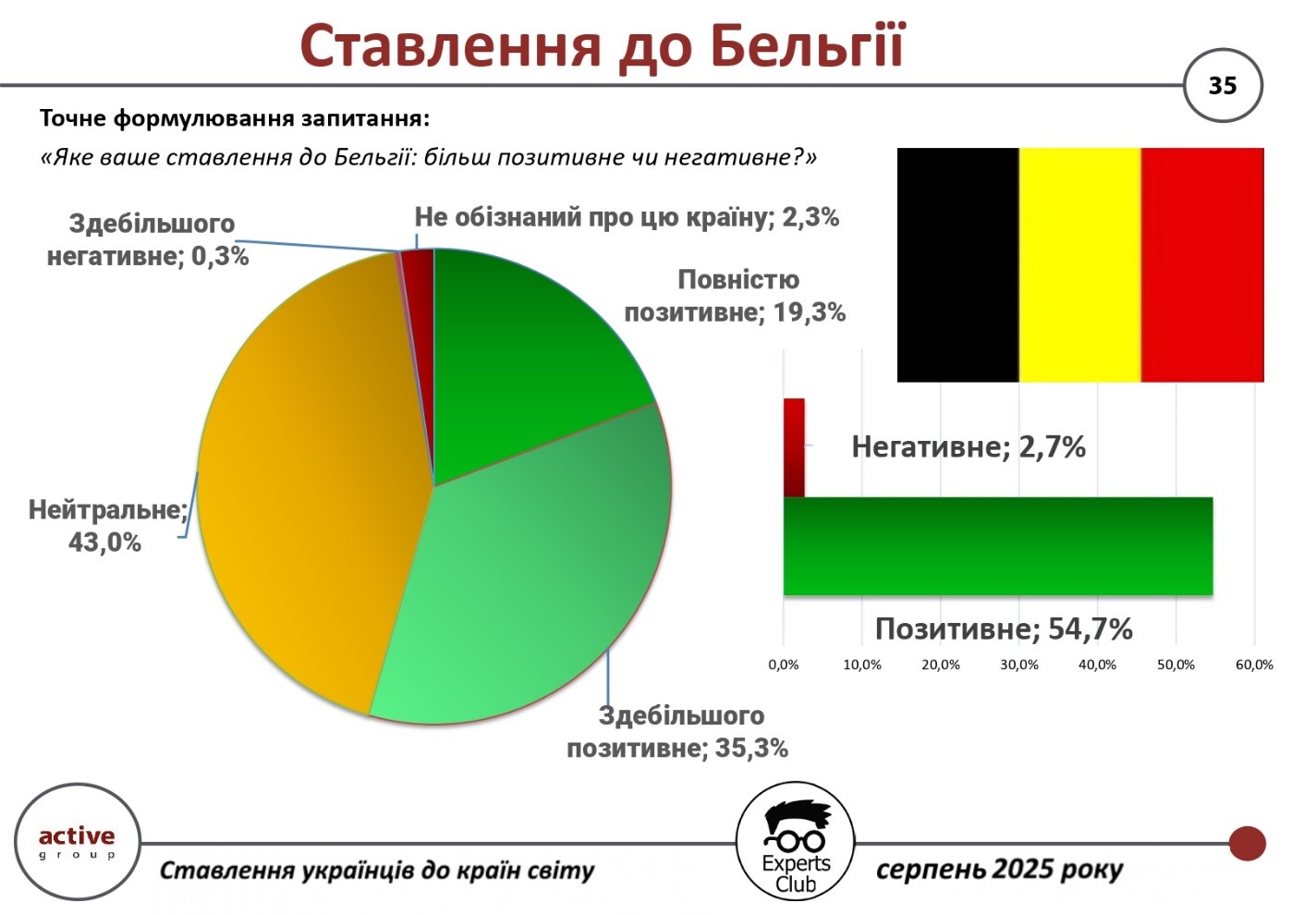
In turn, co-founder of Experts Club Maksim Urakin drew attention to the economic component of bilateral relations:
“In the first half of 2025, trade turnover between Ukraine and Belgium amounted to more than $584 million. Ukrainian exports amounted to about $235 million, while imports from Belgium exceeded $348 million. This resulted in a negative balance of $113.8 million, which highlights the Ukrainian market’s dependence on Belgian goods,” he emphasized.
The study is part of a broader project aimed at examining the international sympathies and antipathies of Ukrainians in 2025.
The full video can be viewed at: https://www.youtube.com/watch?v=YgC9TPnMoMI&t
You can subscribe to the Experts Club YouTube channel here: https://www.youtube.com/@ExpertsClub
ACTIVE GROUP, BELGIUM, DIPLOMACY, EXPERTS CLUB, Pozniy, SOCIOLOGY, TRADE, URAKIN
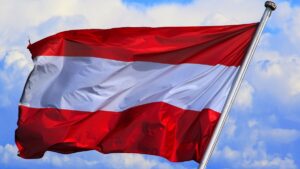
Ukrainians’ attitude towards Austria is generally positive, but a significant proportion of respondents remain neutral. These are the results of a nationwide sociological survey conducted by Active Group in cooperation with Experts Club in August 2025.
According to the survey, 48.7% of Ukrainians expressed a positive attitude towards Austria (37.0% — mostly positive, 11.7% — completely positive). Only 4.7% of citizens demonstrated a negative attitude (4.3% — mostly negative, 0.3% — completely negative). At the same time, the largest group — 44.7% of respondents — took a neutral position, while another 2.3% said they did not have enough information about the country.
“Austria is traditionally perceived by Ukrainians as a European country with high social standards, cultural heritage, and a stable political system. Although Austria is not Ukraine’s main partner in foreign policy, the overall level of sympathy remains positive,” emphasized Active Group founder Oleksandr Pozniy.
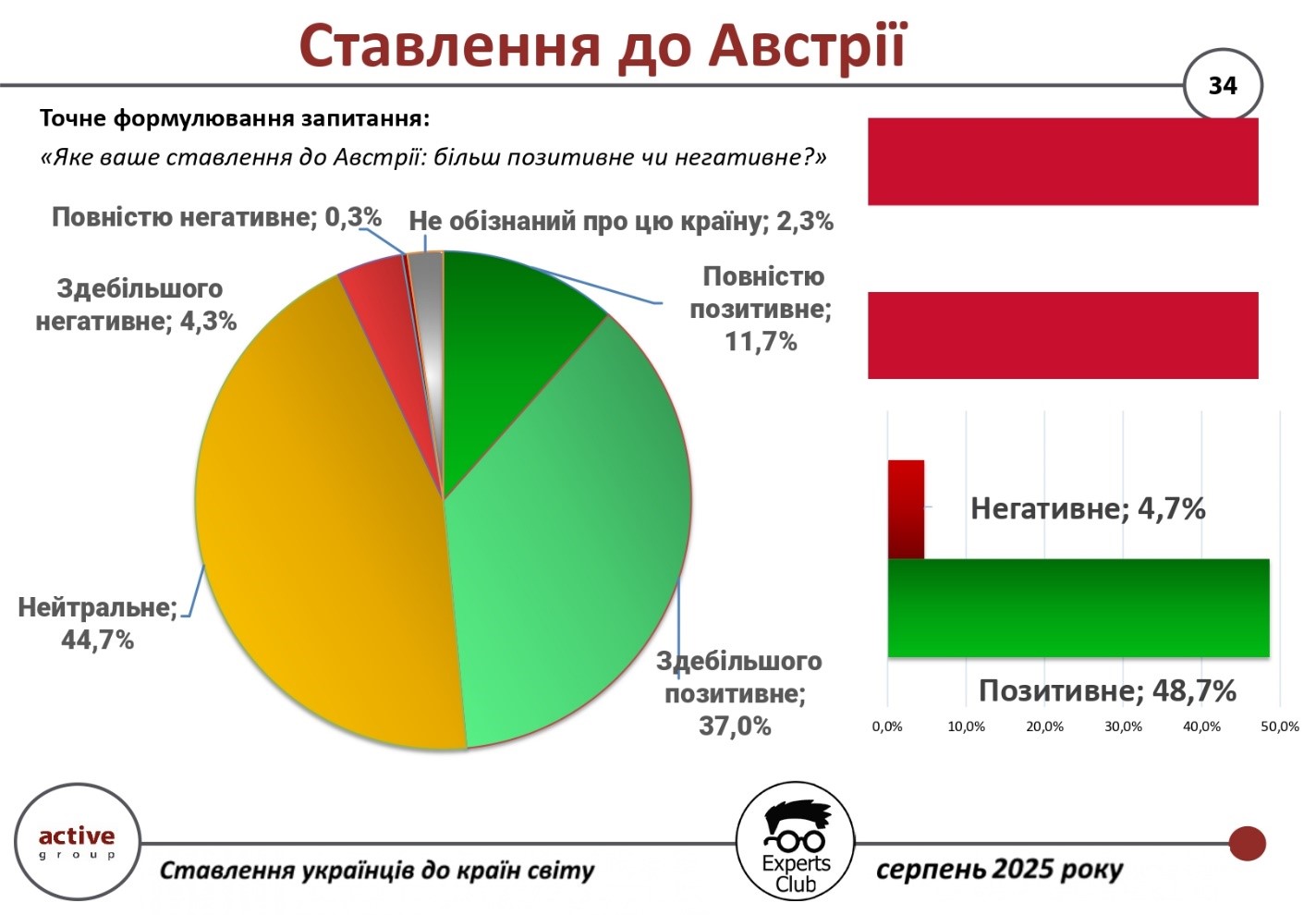
In turn, co-founder of Experts Club Maksim Urakin drew attention to the economic component:
“In January–June 2025, the total trade volume between Ukraine and Austria amounted to over $701 million. At the same time, exports of Ukrainian goods reached $276 million, while imports from Austria amounted to about $425 million. This led to a negative balance of $148.9 million, which indicates a significant advantage of Austrian exports over Ukrainian ones,” the expert emphasized.
The survey is part of a large-scale study of Ukrainians’ international sympathies and antipathies, reflecting not only political and cultural aspects, but also economic aspects of relations with various countries.
The full video can be viewed at: https://www.youtube.com/watch?v=YgC9TPnMoMI&t
You can subscribe to the Experts Club YouTube channel here: https://www.youtube.com/@ExpertsClub
ACTIVE GROUP, AUSTRIA, DIPLOMACY, EXPERTS CLUB, Pozniy, SOCIOLOGY, TRADE, URAKIN

Ukrainians have a predominantly neutral attitude towards Libya, although the level of negative assessments is higher than for most other North African countries. This is evidenced by the results of a survey conducted by Active Group in partnership with Experts Club.
According to the data, 9.3% of respondents expressed a positive attitude toward Libya (6% — mostly positive, 3.3% — completely positive). A negative attitude was expressed by 14.3% of respondents (11.7% — mostly negative, 2.7% — completely negative). The majority of Ukrainians — 69.7% — took a neutral position, while another 6.7% said they did not have enough information.
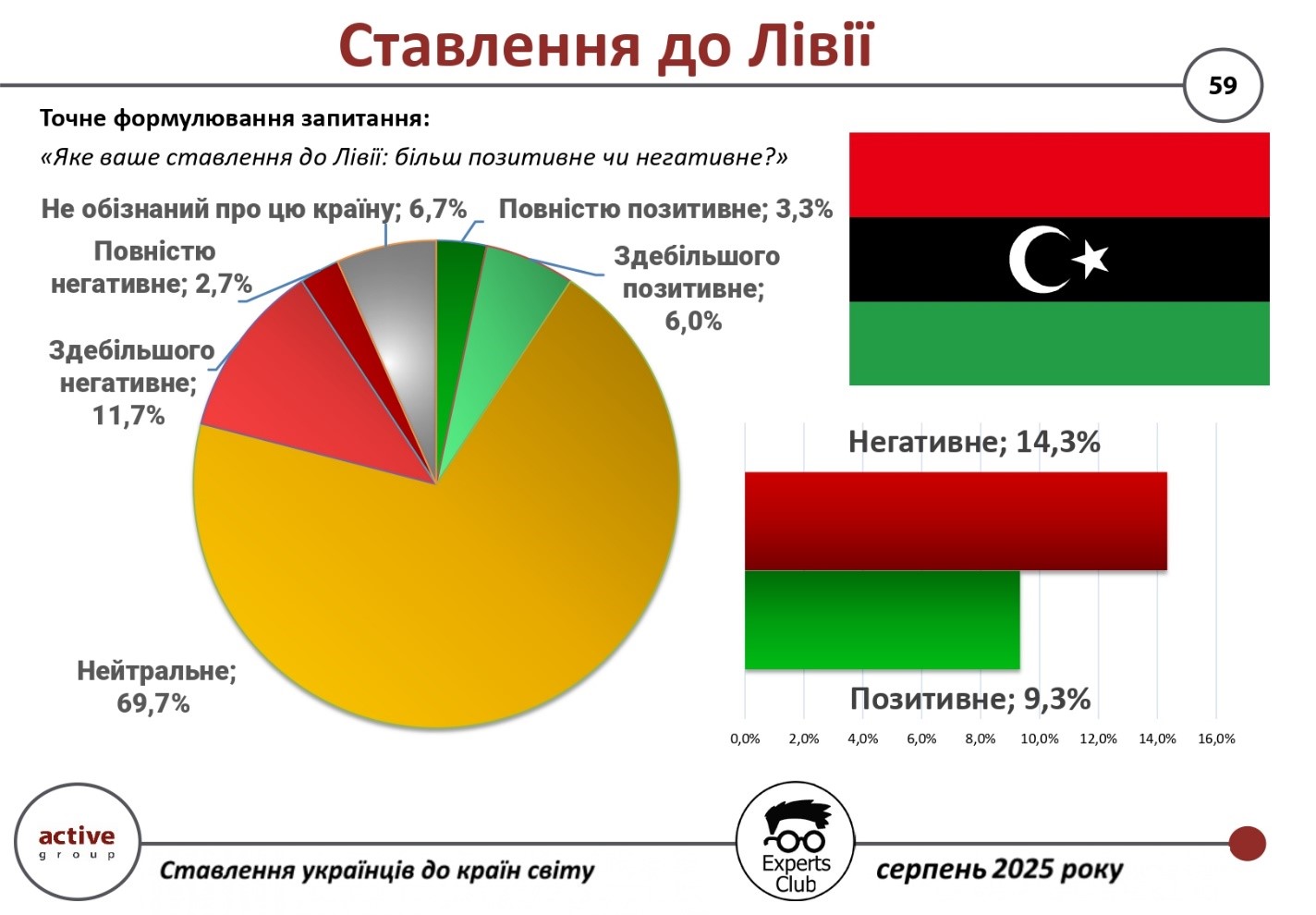
In 2024, trade turnover between Ukraine and Libya amounted to $149.7 million, of which exports accounted for $141.7 million and imports for $8.1 million. The positive balance was $133.6 million.
“Libya remains a traditional market for Ukrainian agricultural products, but political instability in that country affects both trade dynamics and perceptions among Ukrainians. The high level of neutrality indicates a lack of knowledge, as well as the absence of stable humanitarian and cultural ties,” commented economist and founder of Experts Club Maksim Urakin.
The full video can be viewed at: https://www.youtube.com/watch?v=YgC9TPnMoMI&t
You can subscribe to the Experts Club YouTube channel here: https://www.youtube.com/@ExpertsClub
ACTIVE GROUP, EXPERTS CLUB, Livia, Pozniy, SOCIOLOGY, TRADE, UKRAINE, URAKIN
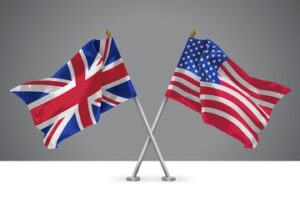
According to the results of a survey conducted by Active Group in collaboration with Experts Club in August 2025, Ukrainians identified priority areas for the development of foreign economic relations.
The majority of respondents – 81.3% – believe that Ukraine should first and foremost develop economic cooperation with the countries of the European Union. The United Kingdom also received a high level of support – 66.5%, while the United States came in third with 62.7%.
Citizens also pay significant attention to Asian countries: 36.2% of respondents support expanding relations with Southeast Asian countries (Japan, South Korea, etc.), and 31.7% with China. At the same time, 29.5% pointed to the importance of deepening cooperation with countries in the Arab and Muslim world.
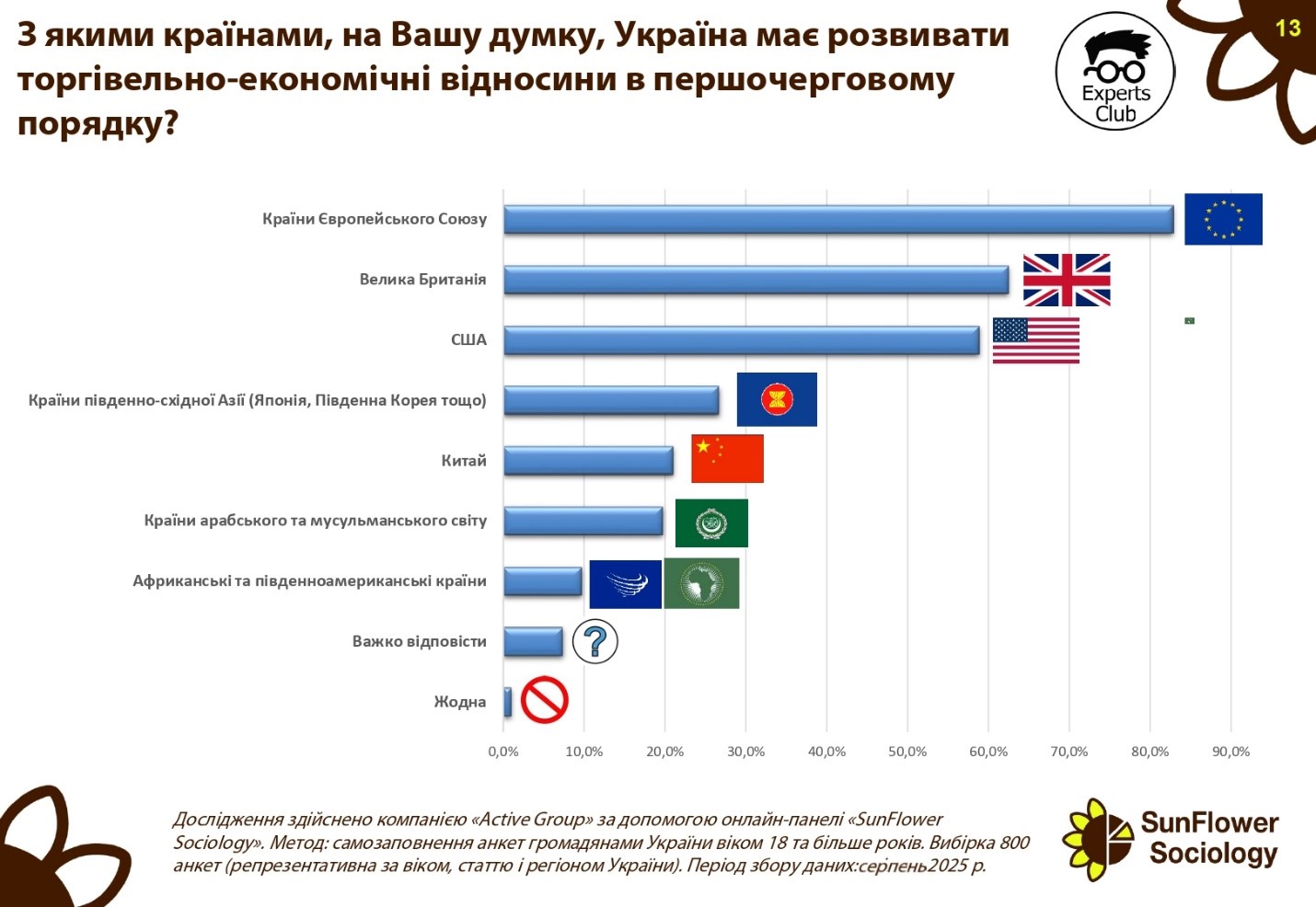
To a lesser extent, respondents are focused on partnerships with African and South American countries — this direction was supported by 14.8% of Ukrainians. Another 8.3% of respondents were undecided, and 1.0% believe that Ukraine does not need any new economic partnerships.
“These data clearly demonstrate the European and transatlantic orientation of Ukrainians in terms of economic priorities. The EU, the UK, and the US form the basis of foreign economic trust, while Asia and the Arab world are perceived as promising but secondary partners,” commented Active Group Director Oleksandr Pozniy.
According to Experts Club co-founder Maksim Urakin, the survey results confirm the real economic structure of Ukraine’s trade.
“The EU is already Ukraine’s main trading partner, accounting for over 40% of trade turnover, but if we analyze individual countries, China remains the leader. The high levels of support for cooperation with the UK and the US reflect society’s trust in Ukraine’s political and economic partners during this difficult period. At the same time, interest in Asia and the Arab world indicates the need to diversify markets and seek new opportunities in the future,” he stressed.
The survey was conducted using self-completed questionnaires among 800 Ukrainian citizens aged 18 and older. The sample is representative in terms of age, gender, and region.
ACTIVE GROUP, Arab countries, CHINA, EU, EXPERTS CLUB, GREAT BRITAIN, JAPAN, Pozniy, SOCIOLOGY, SOUTH KOREA, TRADE, UKRAINIAN ECONOMY, URAKIN, USA

Ukrainians are generally neutral towards Tunisia, according to the results of a study conducted by Active Group in collaboration with Experts Club.
According to the survey, 16% of respondents have a positive opinion of the country (12.3% – mostly positive, 3.7% – completely positive). Four percent of respondents expressed a negative opinion (2.3% – mostly negative, 1.7% – completely negative). At the same time, the majority of Ukrainians chose a neutral position – 72.3%, while another 7.7% said they knew little about this country.
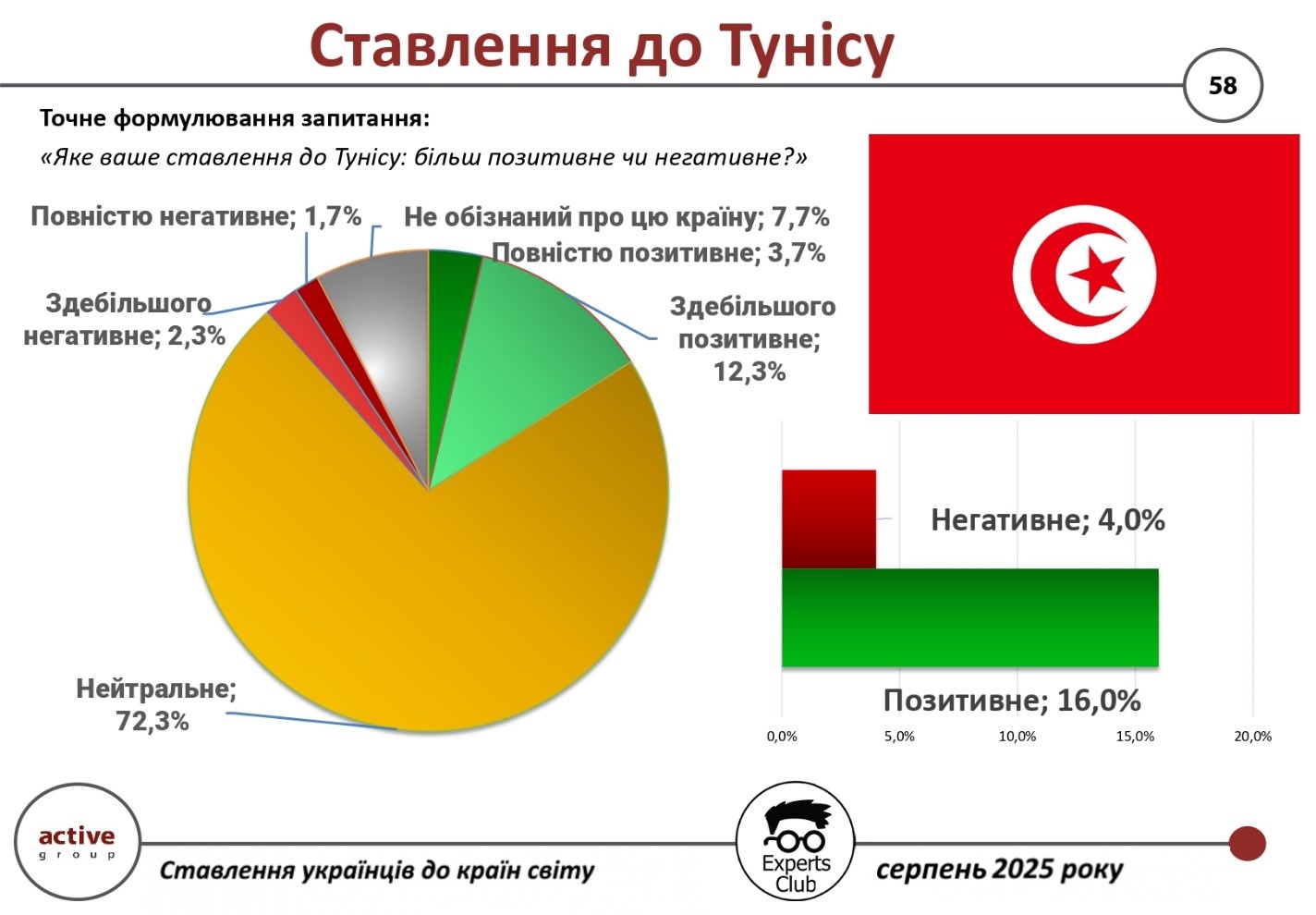
At the end of 2024, trade turnover between Ukraine and Tunisia amounted to $153.9 million, of which Ukrainian exports amounted to $133.4 million and imports to $20.5 million. The positive balance was $112.9 million.
“Ukraine has fairly stable economic relations with Tunisia. The significant positive trade balance shows that Ukrainian goods, in particular agricultural products and metals, are in demand in the North African market. At the same time, due to geographical distance and weak information links, Ukrainians’ attitude towards Tunisia is mostly neutral,” said Experts Club founder Maksim Urakin.
The full video can be viewed at: https://www.youtube.com/watch?v=YgC9TPnMoMI&t
You can subscribe to the Experts Club YouTube channel here: https://www.youtube.com/@ExpertsClub
ACTIVE GROUP, EXPERTS CLUB, Pozniy, SOCIOLOGY, TRADE, TUNISIA, UKRAINE, URAKIN